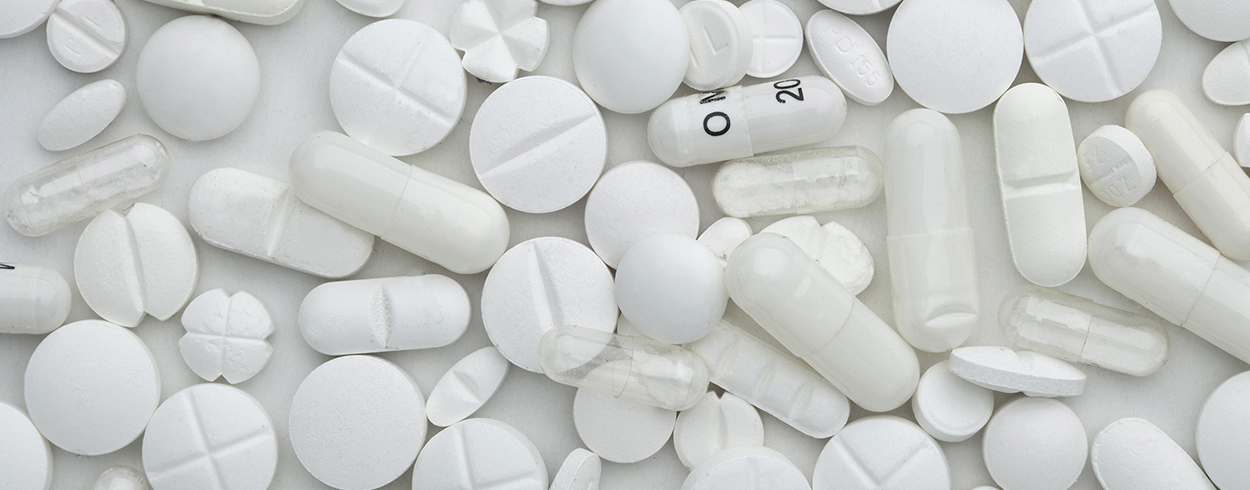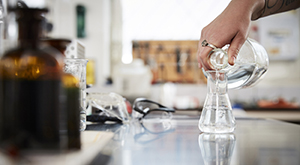
Medication and alcohol can have undesirable effects when combined
Standard alcohol consumption will not usually have a significant impact on the effectiveness of medication. However, drinking while on medication is not recommended, as some drugs may have harmful or fatal joint effects when combined with alcohol. Always check with your doctor to make sure that your medication is safe to use with alcohol.
- Burana and alcohol – can you take anti-inflammatory medication with alcohol?
- Antibiotics and alcohol
- Allergy medication and alcohol
- Drugs and alcohol affect the central nervous system
- Alcohol with hypertension and anticoagulant medication
- Diabetes medication and alcohol
- Antabuse reaction
When combined with drugs, alcohol can cause a variety of joint effects. Alcohol can hinder the absorption or breakdown of drugs in the body, thereby changing how long it takes medication to have an effect. If alcohol and medication affect the same organ or bodily function, they can strengthen or cancel out each other’s effects. Ask your doctor for more information about the joint effects of alcohol and medication.
Consuming alcohol continually or in large quantities is not compatible with any type of medication. It may render your medication useless, lead to the production of poisonous metabolites, overload your liver, or suddenly increase the power of a drug.
Burana and alcohol – can you take anti-inflammatory medication with alcohol?
Regular non-prescription anti-inflammatory medication will not usually cause any problems when taken in standard doses. This type of medication includes aspirin (acetylsalicylic acid), ibuprofen and ketoprofen, which in Finland are sold under tradenames such as Burana, Ibumax, Ketorin or Aspirin. However, long-term use may irritate the digestive tract and alcohol will intensify this reaction.
The painkiller paracetamol, sold under tradenames such as Panadol or Paratabs, may increase the risk of liver damage when taken with alcohol.
Antibiotics and alcohol
You can usually drink alcohol in moderation while taking a course of antibiotics. However, you should always ask your doctor about any potential joint effects, as some antibiotics have an active ingredient called metronidazole, which must never be used with alcohol.
Allergy medication and alcohol
Cetirizine is the active ingredient in a lot of allergy medication, such as Heinix, Zyrtec and Histec. Small quantities of alcohol will not cause any side effects with cetirizine. However, allergy medication may cause tiredness and drowsiness, and alcohol may increase and intensify these side effects.
Drugs and alcohol affect the central nervous system
As alcohol impairs the function of the nervous system, the simultaneous use of a drug with similar effects will intensify the effects of alcohol, that is, intensify intoxication. This could lead to poisoning or a decisive loss of mental and physical capacity. Medication that affects the central nervous system includes sleeping pills, tranquilisers, muscle relaxants and strong painkillers.
Alcohol with hypertension and anticoagulant medication
As alcohol expands the body’s blood vessels, the combined use of alcohol and hypertension medication may lead to a dramatic drop in blood pressure.
Alcohol may also change the effectiveness of warfarin, the active ingredient in hypertension medication.
Diabetes medication and alcohol
When combined with many diabetes drugs, alcohol can cause a dramatic drop in blood sugar that may lead to unconsciousness. However, if you don’t take your diabetes medication in order to be able to drink alcohol, you many end up in a coma after a dramatic rise in your blood sugar level.
Antabuse reaction
Some drugs may have an impact on the breakdown of alcohol, causing an antabuse reaction. Examples of such drugs include Antabus (which is used to treat alcoholism), and some diabetes drugs and antibiotics. The symptoms of an Antabuse reaction are nausea, vomiting, skin flushing, accelerated heartrate and a headache.
Article sources:
Addictionlink
EHYT Finnish Association for Substance Abuse Prevention
Finnish Student Health Service
Article picture: Folio Images



